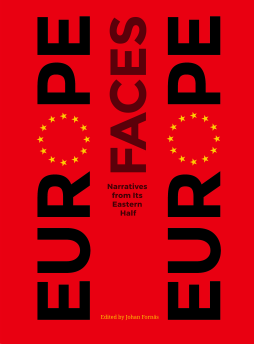
Additional Information
Book Details
Abstract
How is Europe identified in narratives from its eastern periphery? This is the core question of this volume. Its chapters map narratives of Europe rooted in East Europe, as they circulate in phenomenological philosophy, news journalism, social movements, literary texts, visual art and popular music. Whereas debate and research on European identity is normally conducted in self-congratulatory terms by core institutions in the center, the focus here is on how Europeanness is narrated in one of its most dynamic regions: Eastern Europe. A closer scrutiny of how such East European narratives critically rework inherited conceptions reveals a range of strategies for interpreting European identity in this transitory phase of history.
Table of Contents
| Section Title | Page | Action | Price |
|---|---|---|---|
| Cover | Cover | ||
| Half Title | i | ||
| Title | iii | ||
| Copyright | iv | ||
| Contents | v | ||
| List of Illustrations | vii | ||
| Chapter 1: Europe Faces Europe: An Introduction | 1 | ||
| Chapter 2: Europe as Identity and Ideal: Reading Barroso’s ‘New Narrative’ Heretically alongside Hegel, Husserl and Patocˇka | 35 | ||
| Chapter 3: Clashing Internationalisms: East European Narratives of West European Integration | 63 | ||
| Chapter 4: Narratives at War: Representations of Europe in News Media of Ukraine, Russia and Poland during Euromaidan | 93 | ||
| Chapter 5: Narrating Protest: Silenced Stories of Europe in Occupy Stockholm and Occupy Latvia | 133 | ||
| Chapter 6: The Resilience of the Periphery: Narrating Europe through Curatorial Strategies | 153 | ||
| Chapter 7: Euro-Visions: East European Narratives in Televised Popular Music | 179 | ||
| Index | 237 | ||
| Back Cover | Back Cover |
